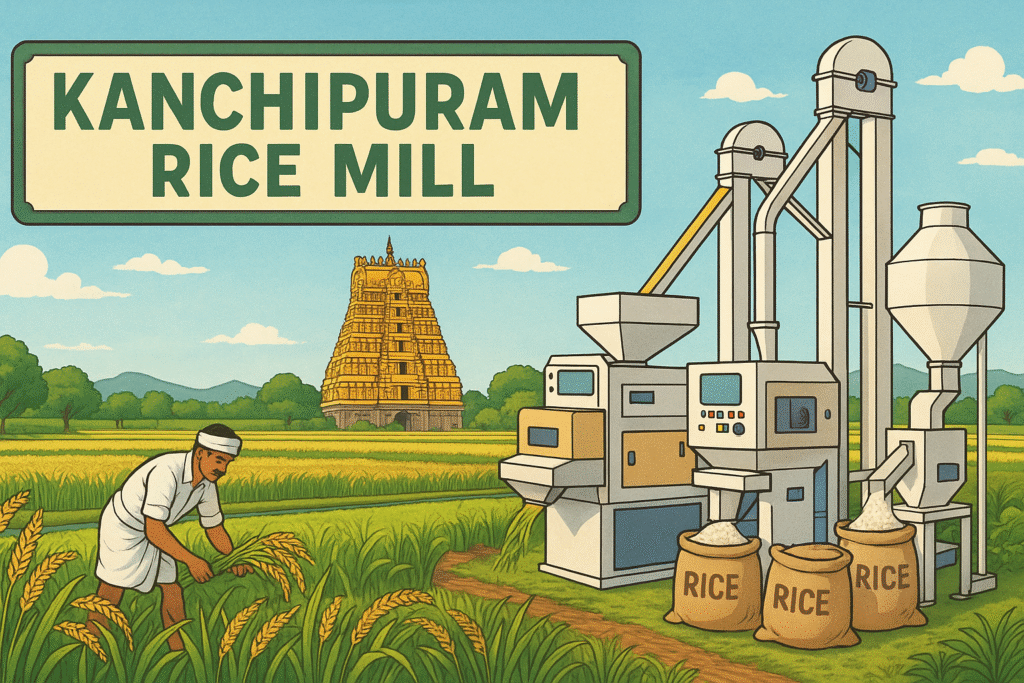Unveiling the Challenges Faced by Rice Mills in Tamil Nadu


Rice is a staple food for millions of people in Tamil Nadu, making rice mills a crucial part of the state’s agricultural and economic landscape. These mills play a pivotal role in processing paddy into rice, ensuring a steady supply of this essential food grain to the population. However, the rice mill industry in Tamil Nadu faces several challenges that hinder its smooth functioning and growth. In this article, we will shed light on some of the prominent issues plaguing rice mills in Tamil Nadu.
- Power Shortages
Tamil Nadu has been grappling with electricity shortages for years. Frequent power outages significantly impact rice mill operations, leading to delays in processing and increased production costs. Many mills resort to costly alternatives like diesel generators to maintain their operations, leading to increased expenses and reduced profitability.
- High Input Costs
Rice mills incur substantial input costs, including raw materials (paddy), labor, energy, and maintenance. Fluctuations in the prices of paddy and energy can adversely affect the profitability of these mills. Additionally, labor costs have been rising, making it challenging for small and medium-sized mills to compete with larger enterprises.
- Outdated Technology and Machinery
Many rice mills in Tamil Nadu still employ outdated technology and machinery, which affects their efficiency and productivity. Modernizing and upgrading the milling processes can significantly enhance yield, reduce wastage, and improve the quality of the rice produced.
- Unorganized Sector
The rice mill industry in Tamil Nadu comprises both organized and unorganized players. The unorganized sector faces challenges in adhering to quality standards and regulations, leading to the production of subpar rice. Streamlining the industry and implementing standardized practices can help improve overall quality and competitiveness.
- Lack of Infrastructure Support
Insufficient infrastructure support, especially in rural areas, poses challenges to the transportation and distribution of rice. Poor roads and inadequate storage facilities lead to wastage and delays in reaching the market, affecting both millers and consumers.
- Inconsistent Government Policies
Inconsistent government policies and regulations often create uncertainties for rice mill owners. Changes in procurement policies, subsidies, and tax structures can impact the profitability of rice mills. A stable and supportive policy environment is crucial for the growth and sustainability of the industry.
Recent Export Ban on Rice has been a big hit for rice millers, who are into exporting their majority of their production and they are forced to sell their rice in the local market at a much lower price to compete with sellers who are already selling in the domestic market.
- Market Competition
The rice market in Tamil Nadu is highly competitive. Mills face challenges in maintaining their market share and finding their niche amidst the diverse offerings. Mills must focus on quality, branding, and value-added products to remain competitive in the market.
- Environmental Concerns
Traditional rice milling methods generate a significant amount of rice husk and other by-products, leading to environmental concerns. Proper disposal or utilization of these by-products is necessary to minimize the environmental impact and promote sustainability.
Rice Mills are facing issues on both Air and Water front as most of the rice mills are located nearby residential zone and people live nearby are protesting against Air pollution and installing an Air Pollution equipment like Bag Filter or an Electrostatic Precipitator is a costly affair for rice millers.
Conclusion
The rice mill industry in Tamil Nadu plays an integral role in the state’s food supply chain and economy. However, it faces numerous challenges that need to be addressed to ensure its sustainable growth. Solutions such as improved infrastructure, technology upgrades, supportive policies, and better coordination between stakeholders can help overcome these issues.
The government, mill owners, and other stakeholders must collaborate to implement effective strategies that enhance the efficiency, competitiveness, and environmental sustainability of rice mills in Tamil Nadu. By addressing these challenges, the industry can continue to serve the people of Tamil Nadu by providing a steady supply of high-quality rice and contributing to the state’s overall economic development.







